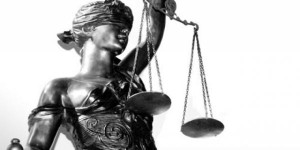After a number of controversial recent incidents involving police use of force, the issue of filming the police is getting lawmakers’ attention in Colorado.
Numerous bills concerning police procedure and conduct have been proposed at the Colorado Statehouse, the most important of which aims to further protect the First Amendment rights of citizens to lawfully film the police.
The bipartisan House Bill 1290 would allow for $15,000 in civil damages to be imposed upon a police agency when an officer interferes with the lawful filming of a police encounter. It also would prevent police from confiscating video from a citizen without a court-issued warrant and impose a penalty if an officer retaliates against a person filming.
The right to take photographs or video in a public place is the First Amendment right of every citizen. The right to film is not a right held only by the press or media, nor does it go away when the subject being filmed is a police officer or public official. Some argue that a law such as HB 1290 is unnecessary because of existing regulations. As Wheat Ridge Police Chief Dan Brennan said, “there’s already an existing process” for determining if an officer acted appropriately. However, a number of recent incidents in Denver show that current laws and regulations are inconsistently applied and often fail to dissuade officers from interfering with citizens who are legally recording them.
According to one of HB 1290’s sponsors, Rep. Joe Salazar, D-Thornton, a Park Hill resident claims that she was prevented from recording the scene where Denver police fatally shot Jessica Hernandez while standing on her own private property. The Hernandez case is a perfect example of when video evidence could be crucial in proving an officer or suspect innocent of wrongdoing. The claim that the officers fired their weapons only after Hernandez struck one of them with a vehicle would be very easy to validate with video evidence. However, the bystander claims that an officer actively interfered with her as she tried to legally record the officers.
![]() Another recent case involved a man videotaping the arrest of a suspected shoplifter at a Walmart in Lakeside. The man observed the Lakeside police making an arrest outside of the store and began videotaping with his phone, until an officer snatched his phone and handcuffed him. The officer stated that he was seizing the phone, claiming that it contained evidence of the suspect resisting arrest. A bill such as HB 1290 would be an important step toward giving officers a clearer set of guidelines to follow in such a situation and ensuring that citizens’ constitutional rights are upheld.
Another recent case involved a man videotaping the arrest of a suspected shoplifter at a Walmart in Lakeside. The man observed the Lakeside police making an arrest outside of the store and began videotaping with his phone, until an officer snatched his phone and handcuffed him. The officer stated that he was seizing the phone, claiming that it contained evidence of the suspect resisting arrest. A bill such as HB 1290 would be an important step toward giving officers a clearer set of guidelines to follow in such a situation and ensuring that citizens’ constitutional rights are upheld.
An important limitation to the proposed bill is that the filming must be “lawful” for the proposed law to apply. While filming the police in public is a constitutionally protected activity, it “may be subject to reasonable time, place, and manner restrictions” according to the First Circuit Federal Court of Appeals in Glik v. Cunniffee. Accordingly, a safe distance should be kept between officers and citizens recording them and care should be taken not to distract or interfere with their duties.
While reasonable limitations are allowed, courts outside of Colorado have been very clear on the existence of the core right to film the police. The First Circuit, covering New England, stated in the Glik decision that there are “clearly established First Amendment rights in filming the officers in a public space.” The 11th Circuit Court, which covers the southeast, stated in Smith v. City of Cumming: “The First Amendment protects the right to gather information about what public officials do on public property, and specifically, a right to record matters of public interest.”
In Colorado, however, the rules apparently remain unclear to many officers. HB 1290 would provide a clearer set of standards for officers to follow, and would allow the Colorado courts to rule on the specific instances where this bill applies. Most importantly, HB 1290 would help ensure that we as citizens can continue to exercise our Constitutional right to record the police without fear of retribution or interference.
Noah Rauscher conducts research at the University of Colorado Denver and is a Future Leaders intern at the Independence Institute, a free market think tank in Denver.


